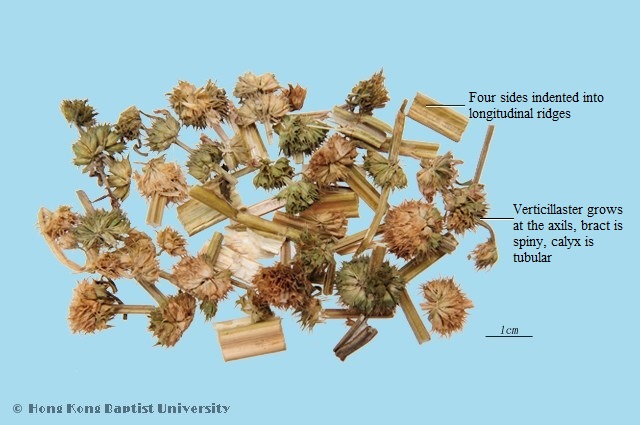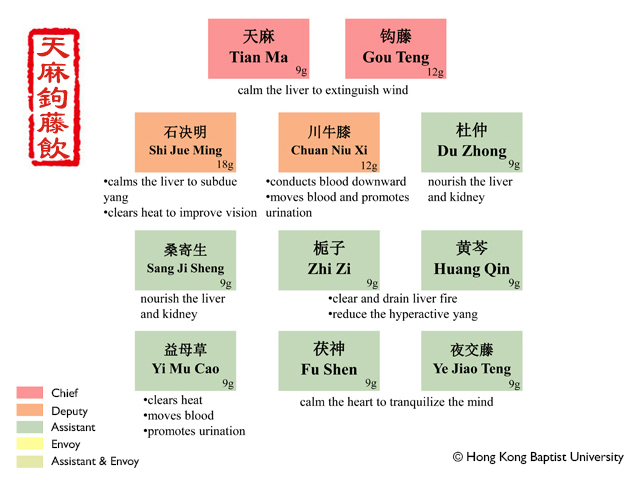Gastrodia and Uncaria Decoction
Action:Calms the liver and extinguishes wind, clears heat and invigorates blood, supplements and boosts the liver and kidney.
Indication:Tian Ma Gou Teng Yin is indicated for patterns of hyperactive liver yang and ascending liver wind. The symptoms are headache, dizziness and vertigo, insomnia with profuse dreaming; or a bitter taste in the mouth, flushed face, a red tongue with a yellow tongue coating, and a wiry or rapid pulse.

